.webp)
Published on
April 4, 2025
The Best 15 Regulatory Compliance Management Software In 2025
In this story

Accelerate AML Compliance: Meet Regulatory Demands with 80% Less Setup Time
.svg)
.svg)
Are you looking for top-notch compliance management software to manage rules and laws, but you want it to be easy to use, grow with your needs, and be reliable? Or maybe you just want a quick look at the best options and what they offer? Look no further. Here, we've rounded up information on the 15 best regulatory compliance management software platforms, we'll highlight what makes each one unique and what they can do for your business.
What is Compliance Management Software?
Compliance management software is a tool or platform that helps organizations & companies handle and streamline their compliance processes. The compliance management software enables businesses and financial institutions to adhere to regulatory laws, industry standards, and their own company rules & internal policies.
Key Pillars of a Compliance Management System
If you're looking for the best compliance management platform, these are must-have features to keep an eye out for:
1. Document Management
Compliance tools should allow you to store and manage all your important compliance documents, like rules, policies, and regulations, in one place.
Regulatory management software helps organizations streamline their compliance processes and stay updated with changing regulations. This regulatory management software ensures that all regulatory requirements are met efficiently and accurately.
Why is this important?
Without centralization, businesses & financial institutions might find it hard to keep track of and find their important compliance documents. This can cause problems like mistakes, not having the right version, and difficulty showing that they're following regulatory rules when checked during audits.
2. Risk Assessment and Management
Regulatory compliance platforms empower organizations & financial institutions to identify, assess, & prioritize the most important risks within the company.
Regulatory compliance management tools are crucial for ensuring businesses adhere to legal requirements and industry standards. These regulatory compliance management tools provide comprehensive features for monitoring compliance activities and mitigating risks effectively.
What happens without these tools?
Without risk assessment and management tools, businesses might underestimate or even overlook the compliance risks of following rules. This could make them break rules, get AML fines for not stopping money laundering, damage their reputation, and get legal liabilities.
3. Audit Trail and Reporting
Compliance monitoring software solutions should offer tracking & logging of changes made within the system and generate full reports for auditing and regulatory reporting purposes.
Compliance software solutions provide integrated tools for managing regulatory requirements efficiently and effectively. These compliance software solutions streamline compliance workflows and enhance organizational compliance readiness.
Why is this important?
If there's no way to see what's been done and write it down, businesses might not know what's happening with their regulatory work. This makes it hard to keep an eye on how well they're following rules, see where they can get better, and show proof they're following rules when checked during compliance checks & regulatory audits.
4. Workflow Automation
A compliance software streamlines compliance processes by automating tasks, notifications, approvals, and escalations.
Automation is the essence of a compliance management platform. Without workflow automation, compliance processes may rely on manual tasks and communication. How can this harm businesses? The risk of errors, delays, and inconsistencies could lead to compliance breaches, missed deadlines, and inefficiencies in compliance management.
Regulatory compliance monitoring software enables real-time tracking and analysis of compliance activities to mitigate risks proactively. This regulatory compliance monitoring software ensures continuous monitoring of regulatory compliance status and facilitates timely corrective actions.
Read more: How Aseel reduced onboarding time by more than 87% using FOCAL
5. Training and Certification Tracking
Monitoring employee training requirements, certifications, and competency levels to ensure ongoing compliance awareness and competence.
How is this important?
Without tracking employee training and certifications, businesses may struggle to ensure that staff members are adequately trained and qualified to perform their compliance-related duties. This can result in gaps in compliance knowledge, increased risk of non-compliance, and potential regulatory penalties.
Comply quickly with local/global regulations with 80% less setup time
.svg)
.svg)
6. Incident Management
A compliance software should have the capability to capture, investigate, and manage compliance-related incidents, including reporting mechanisms for regulatory breaches or policy violations.
With the lack of effective incident management capabilities, businesses may struggle to identify, investigate, and remediate compliance-related incidents promptly and systematically. This could lead to prolonged violations, increased regulatory scrutiny, and damage to the organization's reputation.
7. Integration with Regulatory Updates
Compliance management tools offer the ability to stay up-to-date with changes in regulations and standards, with features for timely dissemination of updates and adaptation of compliance procedures.
Without integration with regulatory updates, businesses may fail to stay current with changes in laws, regulations, and industry standards, leaving them vulnerable to non-compliance and regulatory enforcement actions.
8. User Access Controls
Compliance management tools enable control over user permissions and access levels to ensure data security and compliance with privacy regulations.
Without adequate user access controls, businesses may face security breaches, data leaks, and unauthorized access to sensitive compliance information. This could result in regulatory violations, data privacy breaches, and damage to customer trust.
9. Alerts and Notifications
Automated alerts and notifications for upcoming compliance deadlines, policy changes, or potential issues requiring attention.
Without automated alerts and notifications, businesses may miss important compliance deadlines, policy changes, or emerging risks, increasing the likelihood of non-compliance and regulatory penalties.
10. Scalability and Customization
Regulatory compliance management systems also should offer flexibility to scale the system as the organization grows, along with customization options to tailor the regulatory compliance software systems to specific compliance needs and workflows.
Without scalability, businesses may struggle to adapt their regulatory compliance management software to evolving regulatory requirements, industry changes, and organizational growth. This could lead to inefficiencies, gaps in compliance coverage, and increased compliance-related costs.
Regulatory compliance tracking software enables businesses to efficiently monitor, manage, and document their adherence to industry regulations, reducing the risk of legal violations.
11. Vendor Support and Maintenance
A reliable regulatory compliance software offers access to reliable vendor support, ongoing maintenance, and updates to ensure the system's functionality and compliance with evolving requirements.
This is crucial so that businesses do not experience downtime, technical issues, and lack of access to critical updates and patches.

12. Data Analytics and Insights
Analytical capabilities in regulatory compliance software are important for extracting actionable insights from compliance data, enabling proactive risk management and continuous improvement.
Without data analytics, businesses may overlook compliance trends, emerging risks, and optimization opportunities, leading to reactive efforts, missed improvements, and rising compliance costs. Compliance tracking software allows businesses to efficiently monitor and manage regulatory compliance requirements across various operations.
The Best 15 AML Compliance Management Software In 2025
In this segment, we will review the top 15 Regulatory Compliance management software options for the year 2025.
Please note that the insights shared in this review are based on online research and not hands-on testing of each software tool featured. Should you require an update or notice any inaccuracies, please do not hesitate to reach out for clarification or revisions.
1. FOCAL
FOCAL, by Mozn, offers a comprehensive suite of products powered by advanced AI and machine learning technology to address the challenges of AML (Anti-Money Laundering) Compliance and Fraud Prevention in Emerging Markets.
Key Features:
Who Uses FOCAL?
FOCAL caters to a diverse range of users and organization types, including Mid-Size Businesses, Small Businesses, Enterprises, Freelancers, Nonprofits, Governments, and Startups.
- Banks/Neobanks
- Fintech
- Capital Markets
- Financing & Lending
- Insurance
Pros & Cons:
2. Connecteam
Connecteam is a versatile compliance management software designed to help businesses, particularly those with non-desk employees, streamline their compliance processes and improve workforce management.
The platform offers features like employee training, real-time compliance updates, and easy document management, making it suitable for organizations looking to ensure regulatory adherence and enhance operational efficiency.
Pros & Cons:
Industries:
- Retail
- Security
- Cleaning
- Hospitality
- Construction
- Field Services
- Logistics
- Staffing
3. Resolver
Resolver, one of the top compliance software companies, brings together all risk information and looks at it closely, showing how each risk really affects the business. Resolver’s Risk Intelligence Platform tracks how different types of risks, like compliance, audits, incidents, or threats, can impact the company and turns those effects into clear business numbers.
Pros & Cons:
Industries:
- Banks
- Consumer Goods & Retail
- Education
- Energy & Utilities
- Financial Institutions
- Healthcare
- Manufacturing
- Pharmaceutical
- Technology
4. Netwrix
Netwrix offers features like real-time monitoring, user behavior analysis, and comprehensive reporting, which are essential for risk management and auditing processes.
Pros & Cons:
5. Sumsub
Sumsub, one of the top compliance software companies, stands out as a leading verification platform and regulatory software dedicated to ensuring the security of every step in the user journey. Offering customizable solutions for KYC/AML, KYB, Transaction Monitoring, and Fraud Prevention, Sumsub empowers businesses to streamline their verification processes, expand their global reach, achieve compliance, cut costs, and fortify their operations.
Pros & Cons
Industries:
Sumsub caters to a wide range of industries, including:
- Fintech
- Transportation
- Crypto
- Trading
- Marketplaces
- Online Gaming
- Carsharing
Professional Roles That Benefit Most From SumSub
- Compliance Officers
- Anti-Fraud Teams
- Product Managers
6. Libryo
Libryo is a compliance management software designed to help organizations stay informed about their legal obligations and streamline their regulatory processes. It offers features such as automated legal register updates and a user-friendly interface, which makes it easier for businesses to manage their compliance across various jurisdictions.
Pros & Cons:
7. ComplyAdvantage
ComplyAdvantage is an AML software offering innovative tools to identify and combat risks associated with AML/CFT. ComplyAdvantage delivers strong solutions for customer screening, monitoring, and transaction risk management.
Pros & Cons:
Industries:
- Banks
- Early Stage Start-Ups
- Insurance
- Payments
- Cryptocurrency
- Corporates
- Lending
- WealthTech and Investments
8. AuditBoard
AuditBoard Compliance Management Software is a cloud-based solution designed to streamline audit processes, internal controls, and risk management tasks. It enables organizations to enhance efficiency in auditing through its centralized platform that supports SOX compliance, risk assessments, and collaborative workflows.
Pros & Cons:
9. Unit21
Unit21 is a regulatory compliance tool, and it offers a suite of applications, including Transaction Monitoring, Case Management, and KYC, designed to help companies effectively manage risk and compliance.
Pros & Cons:
Industries:
- Financial Services
- Fintech
- Banking
- Ecommerce
- Payments
10. Ondato
Ondato is a leading digital compliance platform specializing in helping businesses adhere to the latest KYC and AML regulations. Offering a suite of solutions for risk-free regulatory compliance, Ondato covers identity verification, case management, due diligence, and screening, ensuring businesses stay compliant in the digital landscape.
Pros & Cons:
Who Uses Ondato?
- Banks
- Challenger Banks
- Electronic Money Institutions
- Non-Bank Financial Institutions
- Money Remittance Companies
- Insurance Brokers
- Investment Firms
- Payment System Providers
- Lenders
11. SEON
SEON provides a comprehensive fraud prevention platform that integrates real-time data enrichment, device fingerprinting, and advanced machine learning algorithms to detect and prevent fraudulent activities. Its flexible APIs allow seamless integration into existing systems, making it a preferred choice for businesses seeking robust AML compliance solutions.
12. Aless
Alessa offers a complete AML compliance solution known for its ability to integrate with existing ERP and financial systems. It provides features such as transaction monitoring, real-time alerts, risk scenarios, and automated reporting, aiding organizations in maintaining compliance and detecting suspicious activities efficiently.
13. Onfido
Onfido delivers AI-driven identity verification solutions that help businesses verify customer identities and comply with KYC regulations. Its platform combines document verification, biometric checks, and ongoing compliance monitoring to ensure a secure and seamless onboarding process.
14. SAS Anti-Money Laundering
SAS, one of the regulatory compliance software companies, provides an AML solution that combines analytics and AI to detect, investigate, and report suspicious activities. It offers comprehensive risk-based monitoring and streamlined compliance processes, enabling organizations to manage compliance obligations effectively.
15. Sanction Scanner
Sanction Scanner, one of the regulatory compliance software companies, delivers real-time AML compliance software with features like sanction and PEP screening, adverse media screening, and transaction monitoring. It assists organizations in meeting global and local compliance requirements efficiently.
The Biggest Compliance Challenges and Simple Ways to Fix Them
Using the right regulatory compliance tool or compliance management application makes managing risks and tracking regulations easier. Here are the most common challenges institutions encounter:
1. Ever-Changing Rules
Governments constantly create new laws or adjust old ones and if you're not on top of the latest rules, you could accidentally break the law. Good compliance platform software helps keep everything in check.
2. Going Global Complicates Things
Doing business in different countries means facing a variety of rules. What works in one country might not work in another. This is why using a regulatory compliance platform is important, because it helps you manage the different regulations for each place all in one system.
3. The Fight to Protect Data
Data breaches and hacks are big concerns today, and privacy laws are strict. Violating these rules can result in major fines. A solid regulatory compliance management system is essential for protecting customer data and staying compliant with data privacy laws like GDPR.
4. Managing Your Business Partners
Companies often work with outside partners or vendors, and if one of them breaks a rule, your business can face consequences too. Compliance management software that tracks third-party activities can help ensure that everyone you work with follows the rules.
5. Too Much Paper, Not Enough Automation
Many companies still rely on manual work to handle compliance, which means more paperwork and a greater chance of human errors. Compliance tools that automate processes save time and reduce mistakes. This is why businesses are switching to compliance management tools to lighten the load.
6. Lack of Money and Time
Not every business has a large budget or team to handle compliance. Some smaller companies may find it hard to balance their daily tasks with regulatory demands. An easy-to-use compliance management platform helps businesses of any size stay compliant without overspending.
7. Keeping Everyone in the Loop
Even the best compliance software fails if employees aren’t aware of the rules or don’t understand the risks. Poor training can lead to costly mistakes. Using legal compliance software ensures staff know what’s expected of them and how to follow the rules.
8. Complicated Reports
Some regulations require companies to submit detailed reports. Even a small mistake in these reports can lead to fines or lawsuits. With regulatory compliance tools or regulatory tracking software, businesses can keep up with reporting requirements and avoid potential issues.
9. Reputation on the Line
Breaking the rules doesn’t just mean paying fines, it can also damage your company’s reputation, which can be hard to rebuild. The best compliance software helps you stay compliant, build trust, and avoid reputation risks. The best compliance software and regulatory compliance tools help you stay compliant, build trust, and avoid reputation risks.
10. Keeping Up with Innovation
As businesses adopt new technology, it can be hard to ensure they comply with existing regulations. New tech often brings new risks. Using modern software compliance tools and compliance software tools helps companies innovate while staying within the rules. Compliance case management software can help handle violations and reporting smoothly.
9 Factors to Consider When Choosing Regulatory Compliance Software
Regulatory compliance tracking is crucial for businesses to ensure that they remain up-to-date with constantly evolving laws and regulations in their respective industries.
Selecting the right regulatory compliance software is crucial for businesses to ensure adherence to AML, KYC, and other regulatory requirements. Here are 9 key factors to consider:
- Regulatory Coverage: Ensure the software aligns with the specific regulations your business must comply with, such as AML, GDPR, or FINRA.
- Automation & Efficiency: Look for solutions that automate compliance tasks, such as transaction monitoring, reporting, and risk assessment, to reduce manual work and errors.
- Integration Capabilities: The software should seamlessly integrate with your existing systems, including ERP, CRM, and financial platforms, for smooth operations.
- Customizability & Scalability: Choose a solution that adapts to your business size and compliance needs as regulations evolve.
- Real-Time Monitoring & Alert: Ensure the software provides real-time transaction tracking, fraud detection, and immediate alerts for suspicious activities.
- Data Security & Privacy: Compliance software should have robust data encryption, secure storage, and strict access controls to protect sensitive information.
- Reporting & Audit Trails: A strong solution should generate comprehensive reports and maintain clear audit trails for regulatory inspections and internal reviews.
- User-Friendly Interface: An intuitive dashboard and easy-to-use features enhance efficiency and adoption across compliance teams.
- Reputation & Support: Consider vendors with a strong track record, positive customer feedback, and reliable customer support to assist with implementation and troubleshooting.
Conclusion
Every Regulatory Compliance Management software comes with different features designed to meet the specific needs of organizations & financial institutions. Compliance reporting software helps organizations create detailed reports on how well they follow rules, which makes it easier to be open and responsible about following rules.
Businesses should carefully check each software to find the one that matches their goals for following the rules best. These Regulatory compliance management solutions choices are really important, guiding organizations & companies through the tricky parts of managing rules really well. By choosing the right software wisely, businesses can handle risks of non-compliance and take advantage of chances to grow strong.
Contact one of our experts today for a personalized demo of using FOCAL AML Compliance Management Software for your business needs.
FAQs
- What are the top compliance management software solutions available today?
The best compliance software depends on your specific goals and business needs. However, one of the top and most comprehensive platforms is the FOCAL AML compliance and fraud prevention platform. FOCAL, one of the top AI-powered regulatory compliance software vendors, provides advanced features such as real-time monitoring, AI-driven risk assessment, and automated compliance workflows, making it an excellent choice for managing regulatory requirements efficiently.
- Who is responsible for compliance management?
Compliance management is primarily the responsibility of a designated compliance officer or team within the organization. However, it is a shared responsibility, as key stakeholders, including executives, risk managers, and all employees, contribute to maintaining regulatory standards.
- How does compliance management software help organizations meet regulatory requirements?
Compliance management software streamlines the process of adhering to regulatory standards by automating compliance tasks, monitoring activities for compliance violations, generating reports, and ensuring that legal requirements are met consistently, which reduces the risk of human error.
- What is the difference between AML compliance software and general regulatory compliance management solutions?
AML compliance software specializes in identifying and preventing money laundering activities through transaction monitoring, sanctions list screening, and risk assessments. In contrast, general regulatory compliance management solutions cover a wider range of regulations, including data protection, industry-specific rules, and broader financial compliance, beyond just anti-money laundering concerns.
Streamline Compliance: Achieve 80% Faster Setup for Fraud Prevention
.svg)
.svg)
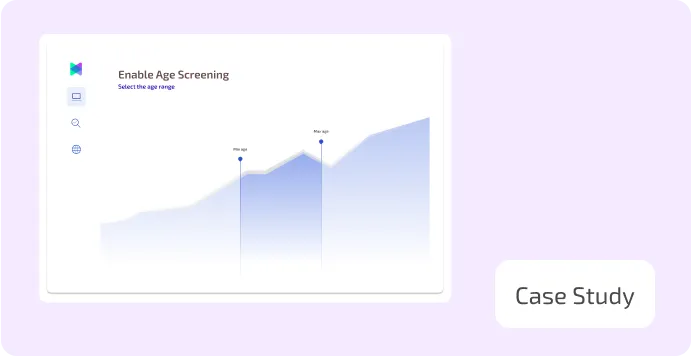
How Aseel reduced onboarding time by more than 87% using FOCAL
Learn how FOCAL empowered Aseel to achieve new milestones.
.svg)
.svg)
Mastering Fraud Prevention: A Comprehensive Guide for KSA and MENA Businesses
51% of organizations fell victim to fraud in the last two years, don't be caught off guard, act proactively.
.svg)
.svg)
Featured blog posts
.svg)
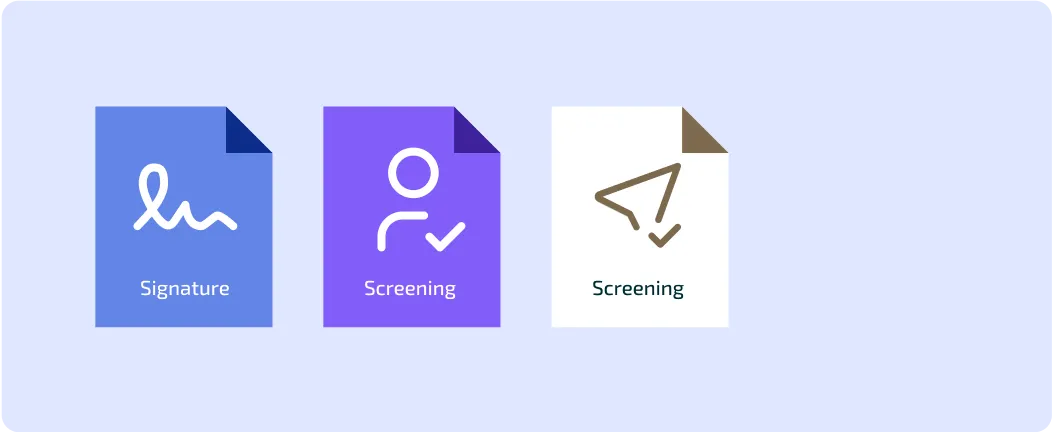


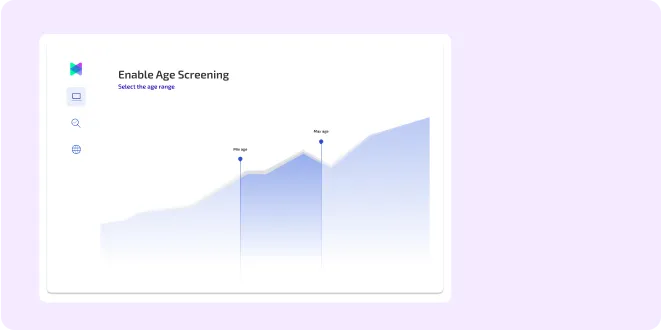
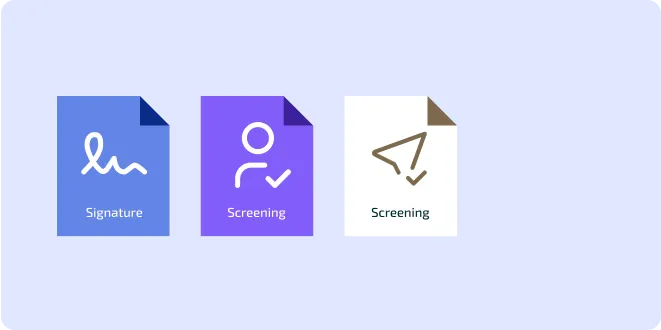
AI-Driven Precision in Fraud Risk and AML Compliance
.svg)
.svg)

.svg)
.png)





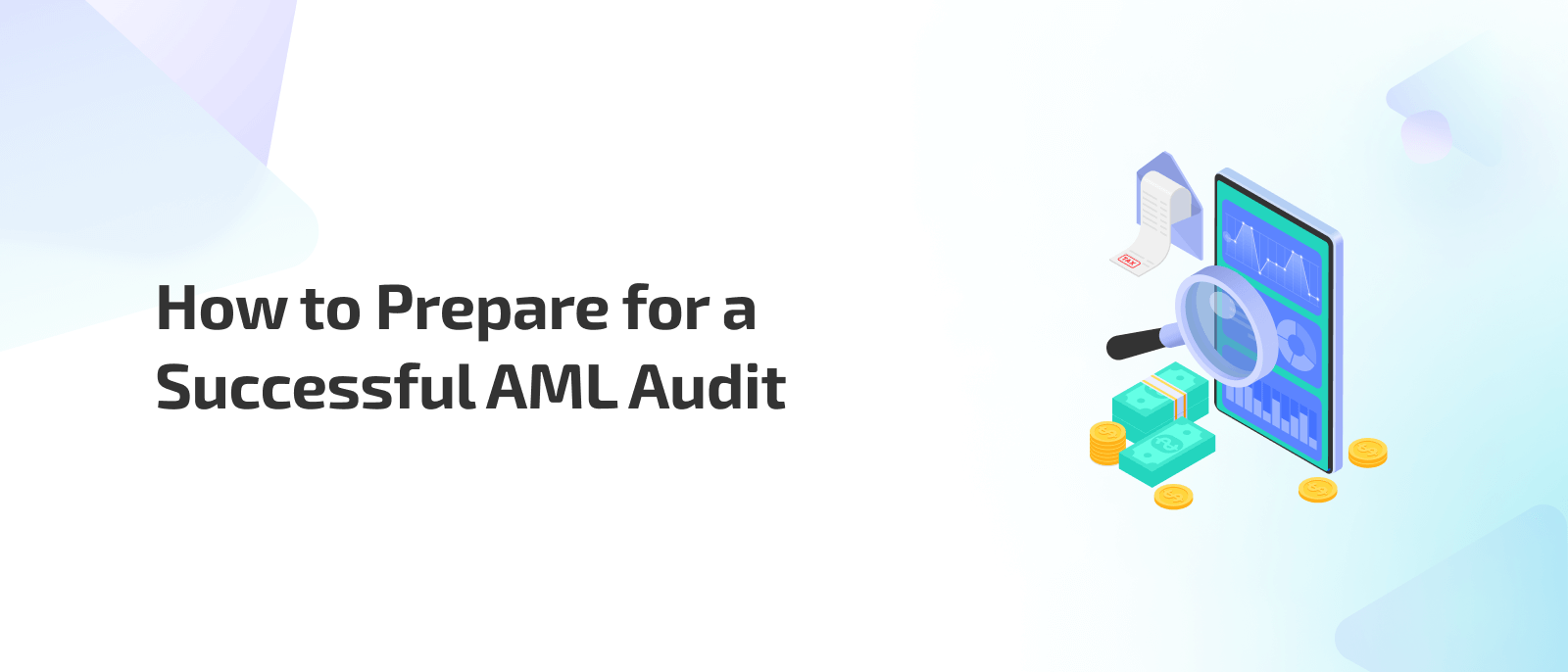
.webp)




.svg)








%20(1).webp)
Comments
Leave a Reply
Comment policy: We love comments and appreciate the time that readers spend to share ideas and give feedback. However, all comments are manually moderated and those deemed to be spam or solely promotional will be deleted.